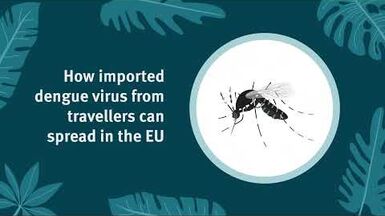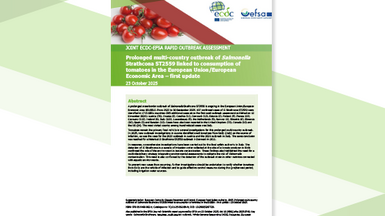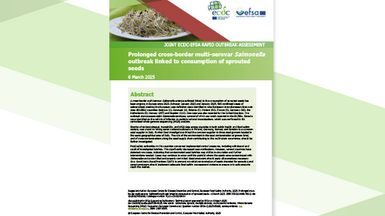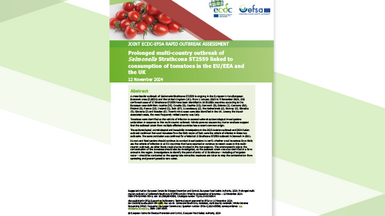Rapid risk assessment: Autochthonous dengue cases in Madeira, Portugal
Following report of cases of locally transmitted dengue infection in the Autonomous Region of Madeira, Portugal, ECDC has produced a rapid risk assessment. It concludes that the risk for travellers and residents will depend on the course of the outbreak in the coming weeks and the effectiveness of the control measures currently being implemented. The epidemiological situation does not imply any trade or travel restriction or other measure beyond the disinfestations currently being carried out.
Executive Summary
As of 10 October, 18 cases have been confirmed and 191 probable cases are under investigation. In total, 26 patients have been hospitalised but only 11 are currently. No cases have been reported on Porto Santo, the other inhabited island of the archipelago.
The cases of locally transmitted dengue infection in the Autonomous Region of Madeira, Portugal, were first reported on 3 October by the Portuguese Public Health Authority (Direção-Geral da Saúde).
This public health event is significant but not entirely unexpected given the established presence of the Aedes aegypti mosquito – the best mosquito vector for the disease – on Madeira.
Protective measures
Portuguese public health authorities are implementing control measures to reduce the risk of sustained transmission locally, the export of infected vectors from the island, and to minimise the impact on the affected population.
The risk for travellers and for residents of the island will depend on the course of the outbreak in the coming weeks and the effectiveness of the control measures. People are advised to take individual protective measures to reduce mosquito bites.
Dengue is transmitted by a day-time mosquito so protection measures should be applied throughout the day. The present situation does not imply the need to change travel advice to Madeira.Neighbouring geographical areas (e.g. Canary Islands) and other EU Member States need to assess the risk for the establishment of Aedes mosquito populations and introduction of dengue. Surveillance activities may need to be implemented or enhanced accordingly.
Dengue transmission
Vertical transmission of dengue virus from mosquitoes to their offspring is documented for Aedes aegypti. This phenomenon, even if limited, and that the mosquito can survive the mild Madeira winter, may contribute to renewed transmission in the spring next year, when the climate warms. Should dengue transmission become entrenched in Madeira, the risk for spread to continental Europe in the summer of 2013 would need to be assessed carefully, although there are no reports of established Aedes aegypti in continental Europe.Dengue is a mosquito borne disease caused by viruses of the Flaviviridae family. The infection is not transmitted directly from human to human, except through blood transfusion, or organ and tissues transplantation. The majority of infections are either asymptomatic or result in a mild febrile illness. The more severe and potentially deadly forms develop in less than 5% of patients.







